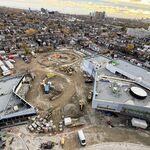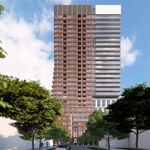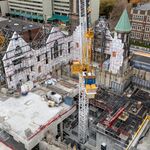So the City Hall finally agreed to pass the BRT rapid transit plan last night.
The most contentious issue was the 900 meter Richmond tunnel. It was needed as Oxford & Richmond is amongst the most congested corner in the city made much worse by the fact that 100 meters from it is a level crossing CP track used 8 times a day including rush hour. London has been trying to get CP off the track for decades but CP has been it's usual diplomatic self and has constantly balked at the idea. The local merchants also didn't want it as it would have required land acquisition on vibrant Richmond Row.........the city's premier and high end shopping, café, nightlife, and restaurant mecca backed up by a wealthy populace and very politically powerful lobby. The downtown core section also seems a bit odd but will probably be tweaked.
In a nutshell it's a $500 million {$120 million from the City and the rest from Ottawa & QP} project being 24 km in 2 "L" shaped routes with exclusive road ROW, modern articulated low-floor buses, far fewer stops, POP, modern stations, frequent service, and will connect the largest centres of employment, education, medical, and office in the city including all 3 hospital, downtown, Richmond Row, Western, Fanshawe, high population density areas, and terminate at the 2 largest malls in the city..............Masonville in the north and White Oaks in the south. In will connect busy and high density population centre of Oxford & Wonderland in the west and Fanshawe in the east with a proposed further eastbound extension to the airport.
No one got everything they wanted but seems like a solid plan and for London to do anything at all on the transportation front is miraculous in itself.




